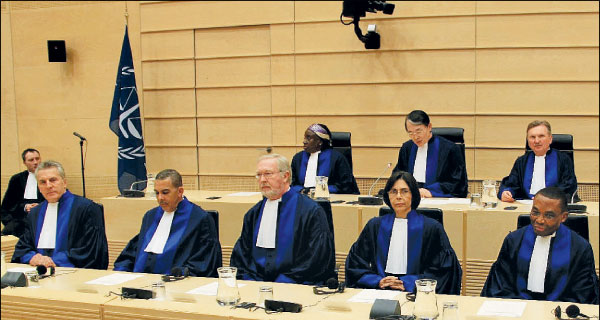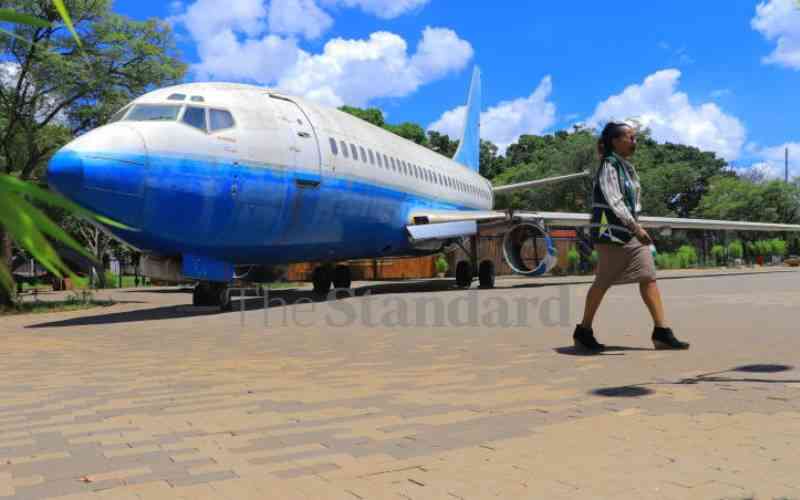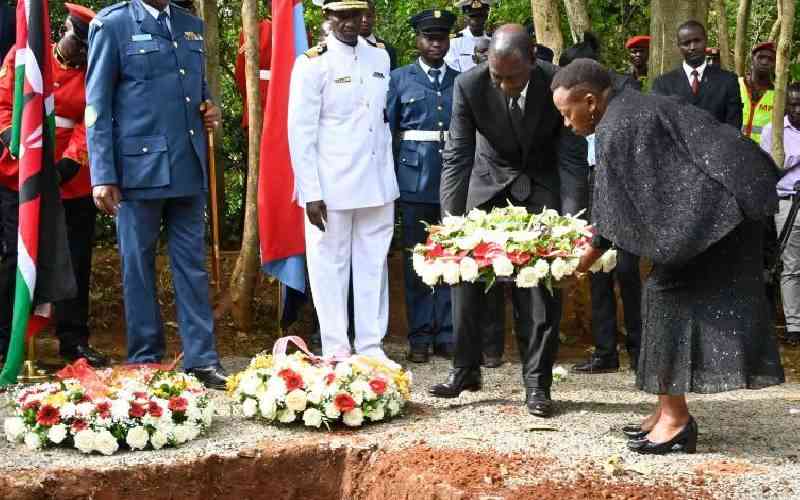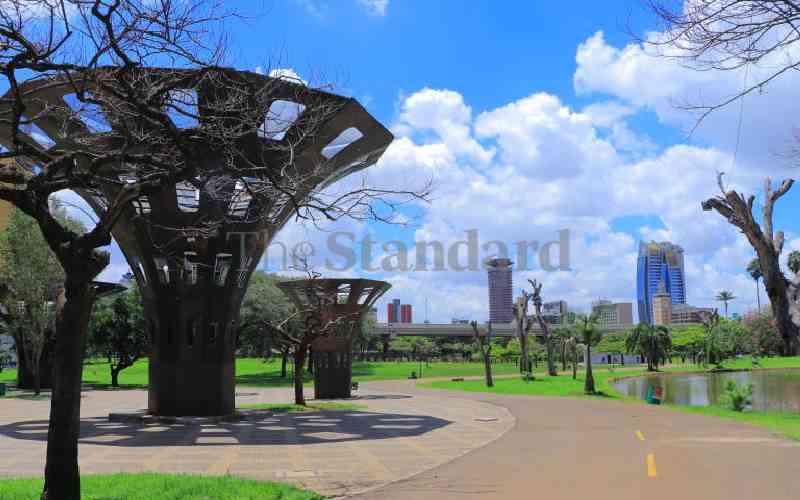 |
|
International criminal court judges during a sitting |
By MWANIKI MUNUHE
Mobile phone records recently obtained by President Kenyatta point to an alleged conspiracy by potential ICC witnesses to extort Sh200 million from him, The Standard on Saturday exclusively learnt.
Phone conversations and text messages of potential witnesses obtained in closed-door court proceedings in Nairobi are quoted extensively in a fresh application in The Hague by the President’s lawyer.
In the application under the motion “Defence Application for a Permanent Stay of the Proceedings due to Abuse of Process”, Kenyatta’s lead lawyer Steven Kay accuses ICC Prosecutor Fatou Bensouda of abuse of process in the collection of evidence and witnesses.
He claims there was “overwhelming evidence pointing to fraud and serious misconduct by the prosecution”, meaning that the confirmation of charges against Kenyatta was based upon fraudulent evidence.
Kay says in the application that the defence has sufficient evidence that “OTPA-12 was involved in a conspiracy to interfere with collection of evidence with others, without the knowledge of Uhuru Kenyatta, for the payment of money is provided in a conversation between OTP-12 and (name protected), in which OTP-12 asks ‘how many millions do you think Uhuru will part with… do you think he would part with 200 million?”
Fraudulent conduct
“In a conversation with (name protected) on September 25, 2012 OTP-12 asks ‘how much many millions would you like’. An exchange then takes place in which the two individuals discuss how OTP-12 should ask for and he concludes that five million is little but when I talk to them I will know how much to ask them for,” reads part of the application.
The evidence is contained in the phone data records the defense accessed after filing a confidential application seeking court orders to compel both Safaricom and Airtel to release to the defense the records.
Should the evidence be confirmed to be true, it may have far reaching repercussion on the Office of the Prosecutor as it would point to fraudulent or improper conduct in gathering of evidence and witnesses.
Consequently, the defence has prepared a strategy similar to the one deployed by Kenyatta’s former co-accused — former Head of Public Service Francis Muthaura — who had his case withdrawn.
But in a robust rejoinder, ICC Chief Prosecutor Fatou Bensouda has indicated she has audio recordings of what she alleges is evidence that individuals who claimed they acted on behalf of Kenyatta attempted to bribe prosecution witnesses.
Bensouda claims efforts to locate the witnesses, identified as P-0011 and P-0012, to persuade them to withdraw their evidence began days after the prosecution disclosed their identities to the defence in August, last year. Subsequently, the prosecution recorded telephone conversations between Witness Number 12 and a person claiming to be Kenyatta’s emissary.
Stay informed. Subscribe to our newsletter
Witness intimidation
The defence equally obtained a positive ruling in the same regard at the ICC where Victims and Witnesses Unit had attempted to block admission of the phone data records on grounds that the move could expose witnesses and victims.
After obtaining the phone data records, the defense proceeded to file an application for permanent stay of the proceedings due to abuse of the process.
“In some cases, you will find that the witness says he was in a meeting at State House or even in a public rally during a certain time on a specific day while the cell site shows he was in a completely different place,” said our source.
Cell phone service providers have systems that enable the recording of the actual location of a phone at any one given time.
The defence claims that the prosecution had intimidated possible defense witnesses and that prosecution witnesses had interfered with collection of evidence.
Kenyatta’s defence further says it has sufficient evidence that OTP-118 not only brought 10 witnesses to the prosecution, but has also interfered with defence witnesses.
“OTP-118 and (redacted) were responsible for bringing 10 other trial witnesses to the prosecution. Witnesses brought by OTP-118 include (OTP-217, OTP219, OTP428, OTP429, OTP 430, OTP 493, OTP 494, OTP505, OTP506 and OTP 510),” reads part of the application.
In the case against Muthaura, the defense filed an application arguing that the prosecution had been dishonest by declining to disclose that witness No. 4 — on whose evidence Muthaura’s case was confirmed — had recanted although the prosecution was aware of the facts before the confirmation of charges.
The prosecution admitted a mistake on its part and proceeded to withdraw the case against Ambassador Muthaura.
“The prosecution acknowledges that it had erred in not disclosing the affidavits at the pre-trial stage and in not alerting the single judge to the specific impeachment component of the document in its non-disclosure applications,” the prosecution had said in response.
 The Standard Group Plc is a
multi-media organization with investments in media platforms spanning newspaper
print operations, television, radio broadcasting, digital and online services. The
Standard Group is recognized as a leading multi-media house in Kenya with a key
influence in matters of national and international interest.
The Standard Group Plc is a
multi-media organization with investments in media platforms spanning newspaper
print operations, television, radio broadcasting, digital and online services. The
Standard Group is recognized as a leading multi-media house in Kenya with a key
influence in matters of national and international interest.
 The Standard Group Plc is a
multi-media organization with investments in media platforms spanning newspaper
print operations, television, radio broadcasting, digital and online services. The
Standard Group is recognized as a leading multi-media house in Kenya with a key
influence in matters of national and international interest.
The Standard Group Plc is a
multi-media organization with investments in media platforms spanning newspaper
print operations, television, radio broadcasting, digital and online services. The
Standard Group is recognized as a leading multi-media house in Kenya with a key
influence in matters of national and international interest.









